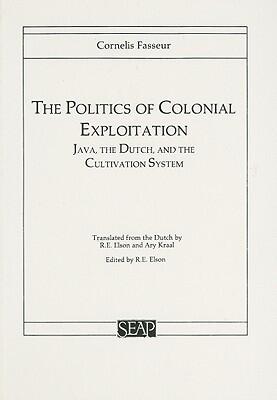
The Politics of Colonial Exploitation: Java, the Dutch, and the Cultivation System
Pas encore d'évaluations
Format
Broché
Pages
266
Langue
Anglais
Publié
Jan 1, 1994
Éditeur
Cornell University Southeast Asia Program Publications
ISBN-10
0877277079
ISBN-13
9780877277071
Description
In exploring the intricate dynamics of colonial power, this work delves deeply into the Cultivation System implemented in Java during the mid-19th century. Fasseur and Elson uncover the systemic exploitation that characterized this period, shedding light on the relationship between the Dutch colonizers and the local population. Their analysis reveals how this agricultural policy shaped economic practices, social structures, and the very fabric of Javanese life.
Through meticulous research and compelling narratives, the authors illustrate the profound impact of these colonial policies on the agricultural landscape of Java. They document the strategies employed by the Dutch to maximize profit at the expense of local welfare, bringing into focus the human stories behind the statistics. The consequences of these exploitative practices resonate far beyond the historical timeframe, influencing contemporary discussions about colonial legacies and post-colonial identities.
This examination serves not only as a historical document but also as a critical reflection on the ethics of colonial governance. The authors invite readers to contemplate the broader implications of such exploitative systems and the ongoing struggle for autonomy and recognition by those who were subjugated. The narrative ultimately emphasizes the need to confront the past to understand its lasting effects on modern society.
Through meticulous research and compelling narratives, the authors illustrate the profound impact of these colonial policies on the agricultural landscape of Java. They document the strategies employed by the Dutch to maximize profit at the expense of local welfare, bringing into focus the human stories behind the statistics. The consequences of these exploitative practices resonate far beyond the historical timeframe, influencing contemporary discussions about colonial legacies and post-colonial identities.
This examination serves not only as a historical document but also as a critical reflection on the ethics of colonial governance. The authors invite readers to contemplate the broader implications of such exploitative systems and the ongoing struggle for autonomy and recognition by those who were subjugated. The narrative ultimately emphasizes the need to confront the past to understand its lasting effects on modern society.
Avis
Aucun avis pour le moment
Soyez le premier à donner votre avis sur ce livre et partagez vos pensées
Ajouter le premier avisJournal de lecture
Aucun journal de lecture trouvé
Commencez à suivre vos progrès de lecture pour voir les journaux ici
Ajoutez votre premier journal de lectureNotes
Journal des transactions
Aucun journal de transactions trouvé
Commencez à suivre vos transactions de livres pour voir les journaux ici
Ajoutez votre premier journal de transactions